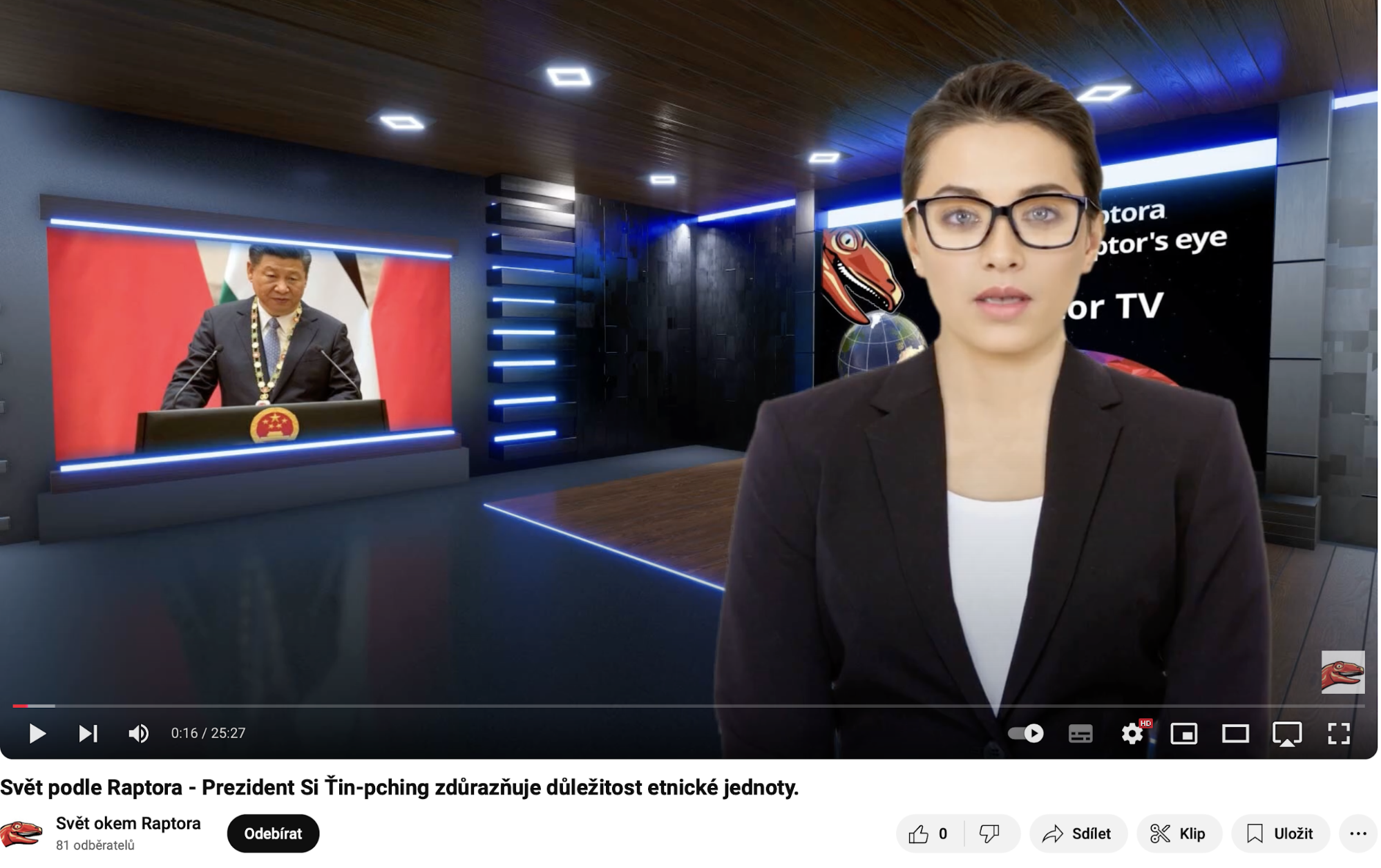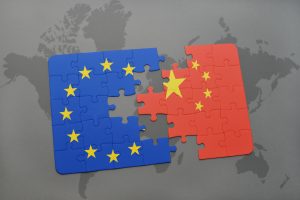Some European far-right and far-left political parties have discovered an unlikely area of convergence: a degree of alignment with China. While not universal across these ideological spectrums, certain parties and individuals within both groups have leveraged overlapping arguments to challenge the more critical stance recently adopted by several EU member states and the European Commission toward Beijing. This emerging alignment, though nuanced and varied in intensity, has potential implications for China-EU relations and the broader political dynamics within Europe.
The study on extreme political parties in the European Parliament published in April 2024 by the Association for International Affairs (AMO) revealed that on human rights, the far right often downplays the significance of China’s violations. Some concede these issues exist but argue that Europe should prioritize its economic and strategic interests. Moreover, far-right parties often echo Beijing’s rhetoric on sovereignty, supporting China’s demands for unchecked control in regions like Hong Kong and Xinjiang. This alignment reflects their nationalist ideologies, emphasizing non-interference and sovereignty over interventionist policies.
Far-right parties such as Germany’s Alternative für Deutschland (AfD) and France’s Rassemblement National prioritize economic pragmatism and national sovereignty. These parties argue that decoupling from China or imposing economic sanctions harms European economies, advocating instead for stronger economic cooperation with Beijing. They view China as a crucial trading partner and a counterbalance to U.S. influence, frequently criticizing the EU for its alignment with Washington on foreign policy issues.
Far-left parties approach China from within an entirely different ideological framework, rooted in critiques of Western imperialism and neoliberalism. They accuse the EU and United States of hypocrisy, using human rights as a geopolitical tool to undermine China while ignoring their own failures. The far left views China’s state-led economic model as an alternative to the neoliberal capitalist paradigm, lauding its emphasis on state planning and development.
Skeptical of militarized policies, far-left groups advocate for dialogue and cooperation rather than confrontation. They resist efforts to isolate Beijing, arguing that such moves exacerbate global tensions and hinder progress on critical issues like climate change.
Shared Perspectives and Chinese Outreach
Despite their ideological differences, the far right and far left share common ground in opposing the EU’s assertive policies toward China. Both argue that these measures often harm European interests more than they impact Beijing. Furthermore, they resist EU motions targeting China’s human rights record or alleged foreign interference, framing them as infringements on sovereignty or distractions from Europe’s internal challenges.
China is keenly aware of this political dynamic and has employed a variety of strategies to court the individuals of the extreme political parties in Europe. This has been demonstrated most recently by an espionage scandal involving German MEP Maximilian Krah (formerly of AfD). In April 2024, Krah’s parliamentary assistant, Jian Guo, was arrested on allegations of spying for China. Guo is accused of passing sensitive European Parliament information to Chinese intelligence services and surveilling Chinese dissidents in Germany. This incident prompted a search of Krah’s Brussels offices and raised concerns about the integrity of European democratic institutions.
Krah, who had employed Guo since 2019, expressed surprise at the allegations but dismissed Guo following the arrest. Despite this controversy, and also an allegation of receiving money from Russian propaganda channels, Krah succeeded in the European Parliament elections in June 2024.
Other techniques include organizing fully funded trips to China and providing support, including financial backing, to local fringe media outlets and social media accounts to amplify pro-Chinese narratives and elevate the voices of far-right and far-left representatives. Czechia offers an interesting laboratory for studying the phenomenon.
Chinese influence efforts in Czechia, particularly through outlets like Chinese state-owned China Radio International (CRI), reveal a targeted strategy of leveraging Czech fringe political voices and groups to propagate Beijing’s narratives. CRI has hosted controversial figures, such as former Communist Party officials and right-wing politicians, to amplify criticisms of the Czech government and promote anti-Western sentiment. These figures, who often come from opposite ends of the political spectrum, share a common skepticism toward the U.S. and EU, which Beijing exploits to align their rhetoric with Chinese interests.
For example, CRI featured Jaroslav Čejka, a former Communist Party official, who framed the election of President Petr Pavel as the onset of “right-wing totalitarianism.” Similarly, an op-ed by Jindřich Rajchl, a far-right politician, criticized Pavel’s communication with Taiwan’s president, portraying it as U.S.-orchestrated interference.
On Facebook, CRI content finds traction among far-left and far-right groups. These groups, often fringe in nature, amplify posts on topics such as Chinese political events or narratives critical of EU or NATO actions. Posts shared by entities like the Communist Party of Bohemia and Moravia or nationalist and conservative groups show significant engagement, demonstrating how China’s content resonates with polarized segments of Czech society.
China also utilizes local online video platforms to embed its messaging discreetly. One notable example is the Czech YouTube channel “World through Raptor’s Eye” (Svět okem Raptora), run by Žarko Jovanović, a Czech activist of Serbian origin known for his pro-Russian stance and history of spreading disinformation. Jovanović’s Raptor TV has a significant following on Facebook, boasting 127,000 followers, although his YouTube channel garners only a modest audience of several dozen subscribers. Despite the limited reach on YouTube, Jovanović uses the platform to solicit financial contributions to his internet TV from his followers, leveraging their support to sustain operations. Notably, Jovanović himself has faced financial difficulties, which underscores the vulnerability of such individuals to external influence. These personal and financial pressures make them susceptible to cooperation with malign foreign powers, eager to exploit ideological alignments or financial desperation to advance their narratives.
Jovanović’s channel “World through Raptor’s Eye” disseminates pro-Chinese messaging aligned with Beijing’s strategic interests, such as describing EU sanctions on Chinese cars as more harmful to Europe than to China. Another video claims that the lives of Tibetans have dramatically improved due to the Chinese government’s “resettlement program and development.” The channel awkwardly repurposes content from Chinese state media outlets like CGTN, adding Czech subtitles and employing AI-generated moderators in a manner that appears amateurish and unpolished. This clumsy integration, while lacking sophistication, still effectively spreads Beijing’s narratives to local audiences. Crucially, the channel fails to disclose the origins of its material, obscuring the role of foreign influence and raising significant concerns about the covert manipulation of public opinion through deceptive tactics.

A screenshot of “World Through the Raptor’s Eye” content featuring Chinese content narrated by an AI-generated moderator.
What to Watch
The convergence of some far-right and far-left political parties in Europe with China poses challenges not only to China-EU relations but also to European democratic institutions. As ideological divides deepen and foreign influence operations become more sophisticated, the risk of manipulation grows, threatening both political stability and public trust.
Moving forward, it is crucial to monitor the evolving rhetoric and tactics employed by these political extremes and their connections to external actors like China. Transparency in media sources, stronger oversight of foreign influence, and a nuanced understanding of the ideological dynamics at play will be vital in mitigating the impact of these relationships. As Europe grapples with its internal divisions, the ability to safeguard democratic integrity against covert manipulation will remain a critical test of its resilience.

































